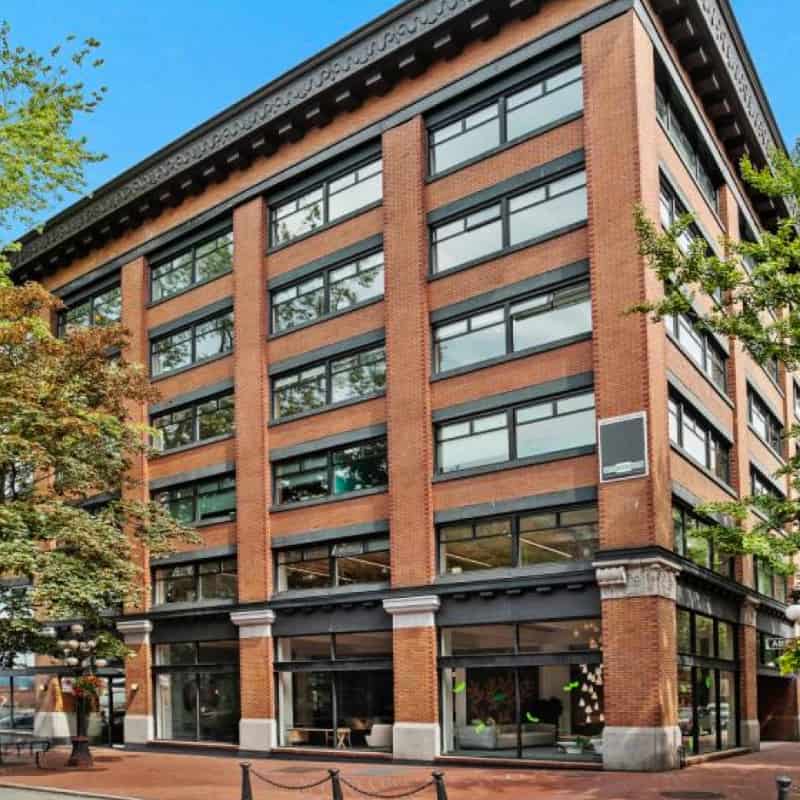
After someone dies, their will is the legal document that provides instructions for what should be done with their estate. According to the law in British Columbia, probate is the process used to validate that the will is real and was left by the deceased.
Some agencies and financial institutions (e, g., credit unions) require that the will be probated before distributing funds. An estate lawyer can help you determine if a will needs to be probated before assets are distributed or accessed by beneficiaries, heirs, or creditors.
If you have been named executor in the will, you may also need to obtain a representation grant (estate grant) that verifies you are legally the executor named in the deceased person’s will.
You can get an application for a representation grant from any Supreme Court registry. You can also apply to the registry to have a representation grant from another province (or other jurisdiction) recognized in British Columbia.
Probating a Will in British Columbia
As part of the grant process, you need to send the will and a Notice of Intended Application 21 days before filing all the application materials with the Supreme Court Probate Registry:
WHEN THERE IS A WILL
WHEN THERE IS A WILL, the Notice of Intended Application goes to each person named in the will as executor or alternate executor, each beneficiary named in the will, and each person who would inherit if the deceased did not have a will.
IF THERE IS NO WILL
If there is no will, the Notice of Intended Application must go to each person who would be an intestate successor according to BC LAW and each creditor owed more than $10,000.
An experienced probate lawyer can help you prepare the appropriate paperwork and submit the grant application. If you are the executor of the estate, it’s a good idea to consult with a lawyer from Spectrum Family Law if you think there may be any questions about the will, distribution of assets, and disposition of debts.
When people are dealing with grief, they do not always think clearly and may be very emotional. Unfortunately, it’s a time when families can pull apart instead of coming together to support each other.
It’s useful to have neutral third party to help the executor(s) and heirs navigate the legal and financial aspects of the disposition of an estate.
Our lawyers have helped many executors and families get through this process and minimize disputes.
Read More → Contesting a Will in British Columbia
What does it mean when a will goes into probate?
Probate is the legal method to prove that a will is valid. It’s also a way to handle estate issues when there is no legal will. The courts set up this process to ensure that the deceased person’s assets are divided according to the wishes expressed in their will and other documented directives.
When there is no legal will, the courts use the probate process to determine how to fairly divide assets and resolve disputes.
Vancouver probate law is governed by the Probate Registry of the Supreme Court of British Columbia. You must wait three weeks after the death before you can file a probate application. After you submit your application, it can take three to six weeks before the registration is granted (approved).
After your application is approved, depending on the complexity of the estate, it can take from one month to two years to fully resolve the estate.
Recently, BC law was amended to accept wills that were created on a computer and signed and/or witnessed electronically. This makes validation via the probate process even more important in cases where there is both a printed copy and electronic copy of a will and the content is different.
Probate can be used to determine which copy is the most recent and most valid regardless of whether it is printed or online.
Can you avoid the probate procedure in BC?

In some cases, it’s more useful to avoid the probate process. Typically, if the total value of the deceased person’s assets is less than $25,000, probate may not be required. If, however, there are potential disputes, it might make sense to go through probate when it is not required by law.
People are understandably emotional after a death. They may also have unrealistic expectations about the size of the estate and what they will inherit. It is easy to misconstrue the size of the estate if you are unaware of outstanding debts or other complications. Probate provides reassurance to heirs, creditors, business associates, and all interested parties that their interests have been fairly considered and protected.
If the estate is small and there is little likelihood of any disputes, then it may make sense to avoid the probate process. A short consultation with a Spectrum Family Law probate lawyer can help you determine any potential pitfalls of avoiding probate procedures.
Executor or administrator responsibilities in BC
If you have been named the executor or administrator of an estate, it means that the deceased trusted you to carry out the instructions in the will. An executor can be one person, or several people may be co-executors or administrators.
The government of British Columbia lists the following duties for an executor or administrator:
- Completing an inventory and valuation of all assets and debts
- Gathering names and addresses of all beneficiaries and next-of-kin
- Cancelling subscriptions and charge cards, redirecting mail, and wrapping up other personal matters
- Taking control of all assets, including the transfer of ownership registrations and the collection of any debts
- Paying all valid or proven debts left to the estate (the executor or administrator may be held personally liable for these debts if they remain unpaid after the distribution of the estate)
- Filing tax returns for the deceased and for the estate
- Selling assets as necessary and distributing the estate
- Preparing and obtaining approval from the beneficiaries, heirs-at-law or the court for accounts showing assets, receipts, disbursements, and distribution of the estate
These are the responsibilities the probate court expects an executor or administrator to perform once they have an estate grant or representation grant. Even before applying for a representation grant, there are responsibilities that need to be performed, including:
- Locating the will
- Disposition of the deceased person’s remains
- Securing assets, locating safety deposit boxes, preparing an inventory, arranging appraisals, etc.
- Determining debts and liabilities
- Notifying government agencies
- Obtaining insurance policies
This means that the executor or administrator must obtain access to all accounts and personal information of the deceased. Gathering this information is a lot of work, even for a spouse, parent, or child. The costs associated with the probate procedures include court fees, which in BC usually amount to about 14% of assets passing through the estate.
Depending on your skills, if you are an executor, it may make sense to hire a lawyer, accountant, or other professional to extract all this information. Lawyers with experience in probate often help executors collect this information and ensure that they accurately meet the disclosure and documentation requirements for the probate process.
What happens when there is no will or executor in BC
Unfortunately, too many people die without a will. If there is no will, there is no designated executor or administrator. The probate process allows for qualified people to apply for a grant of administration to handle the disposition of the estate. A grant of administration can also be used to assign an administrator in the following cases:
- The deceased person did not name an executor
- The executor died after the will was made and no alternate executor was named in the will
- The named executor gives up the right to apply to the court for probate or declines to be executor.
You don’t need a lawyer to apply for a grant of administration, but it can be very helpful. Applying for a grant of administration on your own requires extensive research and paperwork, and it’s a tedious and complicated process.
If you do hire a lawyer, legal fees are considered an appropriate expense that can be paid out of the estate if approved by the beneficiaries or the court. Hiring a lawyer can help the probate process go more quickly and smoothly.
Spectrum Family Law can help you avoid probate mishaps in Vancouver
As an executor or administrator, working with a skilled team of legal experts is the best way to avoid probate mishaps.
Our experienced probate lawyers can help ensure that you properly meet your executor or administrator responsibilities. We can help you clearly define the division of assets and define beneficiaries. Spectrum Family Law can do the heavy lifting for you while you and your family deal with grief.
Call the probate lawyers at Spectrum Family Law for guidance.

Our Vancouver intake staff are standing by to help you. Call 778-452-0221 [toll free 1 (877) 402-1004] or contact us online for general inquiries.
We also have a dedicated intake form to help you get the ball rolling. Our intake team will review your specific case and advise you on the next steps to take as well as what to expect moving forward.
Our Vancouver office is open 8:30 a.m.—4:30 p.m., Mon—Fri.


Madison Lussier
FAMILY LAWYER
Assisting clients through some of the most challenging times in their lives has shaped Madison’s empathetic, professional, and trauma-informed approach to advocacy. Although she now specializes exclusively in family law, her confidence in the courtroom is largely derived from her previous experience in criminal defence.
The Legal Review Process by Spectrum Family Law
- Spectrum strives for high-quality, legally verified content.
- Content is meticulously researched and reviewed by our legal writers/proofers (usually local law students).
- Details are sourced from trusted legal sources like the Family Law Act.
- Each article is edited for accuracy, clarity, and relevance.
- If you find any incorrect information or discrepancies in legal facts, we kindly ask that you contact us with a correction to ensure accuracy.


